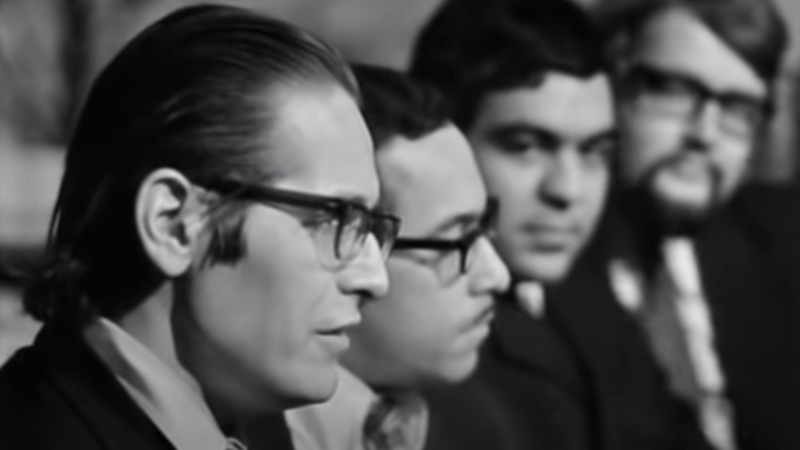Humility? No, Thanks.

Thanksgiving is my favorite holiday, for reasons that Jon Carroll explains well. But America has lost sight of the holiday’s core. This tradition was born out of the early pilgrim’s near-death experience, when they almost starved in the bitter New England winter, and were rescued by the Native Americans who lived there.* The original Thanksgiving had two pillars: gratitude, and humility. Humility in the face of the power of nature in this new land, and the unexpected wisdom and generosity of the people – considered “primitive savages” at the time — who had long lived there.
We have kept the gratitude, but lost the humility. There is no acknowledgement of challenges larger than ourselves, or our need for the aid or wisdom of others. Today, Thanksgiving is a celebration of big food (turkey and pies), big shopping, football, and drinking.
Without humility, the gratitude can turn into a mere celebration of success, even religious triumphalism, the tribal cheer of a people whose mighty god has helped them defeat those lesser people with their lesser (or false) gods. “Thanks, Big Dude, for making us kick ass so hard!” The turkey becomes a sacrificial offering, the dinner table an altar of success.
Sure, we bow our heads and name our blessings, but it has become a confirmation that WE RULE! rather than quiet wonderment at the riches and challenges of this prime land that we stumbled upon, and ripped out of the hands of all challengers.
Nearly 400 years after the first Thanksgiving, prominent Americans – including the last three Republican presidential candidates — openly and unashamedly talk of “American Exceptionalism,” which has morphed from a heresy among U.S. Communists into an ideology that the United States is anointed by God to dominate the world, and not bound by the rules others nations face.
Mitt Romney complained over and over that America was “not shaping events” in the Middle East:
“God did not create this country to be a nation of followers. America is not destined to be one of several equally balanced global powers.”
Why did no one step up to say “What in the world are you talking about? Who are WE to always shape events on the other side of the globe? By what right?”
It’s hard to understand how any thoughtful Christian could embrace this ideology on religious grounds. Put aside, for now, Christ’s pacifism and admonition to “give to Caesar what is Caesar’s.” Why would He give dominion over the earth to the United States, of all places, a nation not created for almost two millennia after His death and rebirth? If He was picking a winner, why not Israel? Or for that matter, every other Western nation, all of which were more explicitly created as Christian than the U.S.?
It’s not just foreign policy, either. Look at the popular English Only! movement. Everyone else on earth sees facility with different languages as a mark of learning and sophistication. Only in the U.S. do people celebrate NOT knowing other languages. (Forget that Spanish and dozens of native American languages were used here for many years before Britain’s tongue ever was. Benjamin Franklin actually published a German newspaper, the Philadelphische Zeitung, starting in 1732.) Multilingualism is our natural condition as a nation of immigrants, but this is one gift we have not appreciated.
Humility starts with admitting that other nations can lead, and that they have much to teach us. Americans have strong opinions about medicine, religion, guns and transportation, and we also have much to teach. But no nation has a monopoly on truth, and we make many mistakes from blindly rejecting foreign views. The French warned us that the Iraq War was a mistake; we mocked them as “cheese-eating surrender monkeys” and renamed our French fries. It would be funny how foolish we were, if so many had not died.
Much of our hubris seems driven by anxiety over the decline of American power. England, Spain, France, Holland, Russia and Portugal have all coasted down from positions of international dominance, with varying amounts of grace. As Harvard professor Stephen Walt notes, these countries also thought they had a special mandate to dominate: Britain’s “white man’s burden,” France’s “mission civilisatrice,” Portugal’s “missão civilizadora.” Even the Soviet Union thought they were advancing a socialist paradise.
There’s a lot of evidence that the United States began a similar decline after peaking in the 1970s. There’s nothing terrible about that, though politicians are afraid to admit it. No nation rules forever.
Whether we renew our primacy or continue our decline, our souls will be much better off if we can get back to the humility that the pilgrims held that first winter. If we can once again acknowledge our luck, learn from others and see ourselves as equals rather than the anointed, we will truly have reason to be thankful.
———————————————————-
* I realize that the story of the first Thanksgiving, with the near starvation and rescue by friendly Native Americans, can be criticized as historically inaccurate. It is still the story that our cultural tradition of Thanksgiving is based on, and that story tells an important truth whether it is factually accurate or not. That truth, the importance of humility, is what we once had and what has been lost.





One thought on “Humility? No, Thanks.”